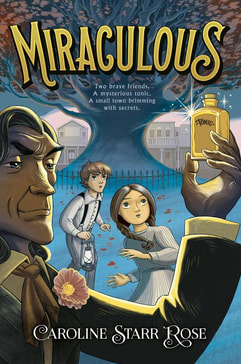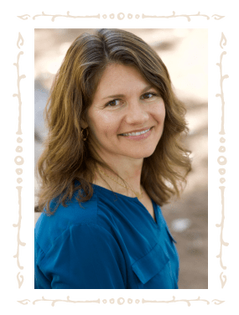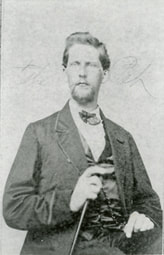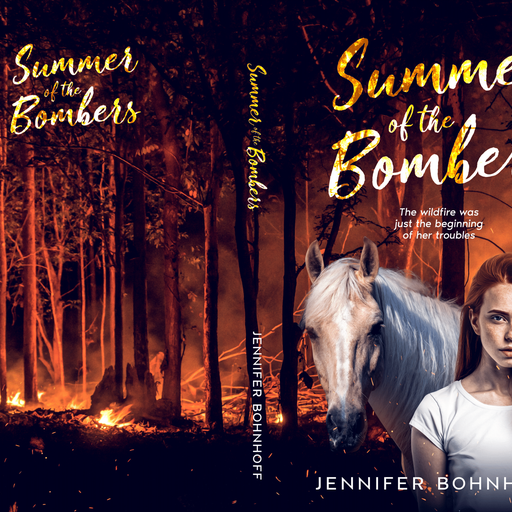
I recently read Miraculous, the story of thirteen-year-old Jack, who becomes an assistant to Dr. Kingsbury, a traveling medicine salesman. Dr. Kingsbury claims his elixir can cure everything from pimples to hearing loss to a broken heart. Jack believes the claims after Dr. Kingsbury gives a bottle of his “Miraculous Tonic” to him, and it cures his baby sister. But when the medical wagon makes a stop in the town of Oakdale, events happen that cause Jack's faith to waver. Soon, he and his new friend Cora are racing to discover truths that everyone want hidden.
This novel reminded me of Moon Over Manifest and of Tuck Everlasting, both of which have tonics with magical powers that may or may not be all they claim, and which bring about unexpected consequences. It's fast paced and exciting and will keep readers guessing.
Once I finished reading Miraculous, I got the opportunity to ask Caroline Starr Rose some questions, which she graciously answered. I'd like to share her responses with you:

Why Ohio? I knew I wanted a town where African Americans were part of the fabric of the community. Early on I knew the story would take place in the Mid-West, but it wasn’t until I took my older son on a college trip that I settled on Ohio. On that trip we toured a park where Cincinnati, OH and Covington, KY converged. There were murals showing the history of the area with panels devoted to various industries, moments in history, and individuals. One panel honored an African American man who ran the town sawmill, was a minister, and a city official. I’d found exactly where my character, Mr. Kennedy, belonged (and with him the rest of the town of Oakdale).
Some of your books, like Blue Birds, have female protagonists. Others, like Jasper and the Riddle of Ridley's Mine, have male protagonists. In Miraculous, a number of different characters get to share their voices. Do you find it easier to have a male vs. female protagonist? What differences do you find as you write in different voices? I’m not sure if it’s easier to write one or the other, but I know I sometimes bring biases I’m unaware of to my work. I remember telling my editor early on when we were working on Jasper that I wasn’t sure how to show his emotions since he was a boy (or if he even had a very big range of emotions). She kindly reminded me that, you know, boys are human. They’ve got emotions, too. Of course they do! I felt pretty dumb (and rather disrespectful — sorry, boys!), but it showed me I’d let some unknown assumptions color my writing without even realizing it.
What I try to focus on now (thanks to my editor) is a character’s humanity above all else. How would this particular person feel and react in this particular circumstance? That’s where I start. I let each character lead.
What is the big message you want readers to come away with after reading Miraculous? I’m a bit uncomfortable with the idea of a message. Writing for me is about exploring, a way to make sense of the world. I want readers to come along on the journey and draw their own conclusions. Looking through that lens I’d say I’d love readers to consider the influence and power of persuasive personalities. I’d like them to see that while advertising techniques of the past might seem extreme or less polished than what we see today, there are very many similarities, especially when it comes to playing to our sense of our personal flaws and ways we might “fix” them. I’d like them to consider the power of friendship and forgiveness and second chances, of not being afraid to question and reevaluate.
For more information on Caroline and her books, visit her website.
















